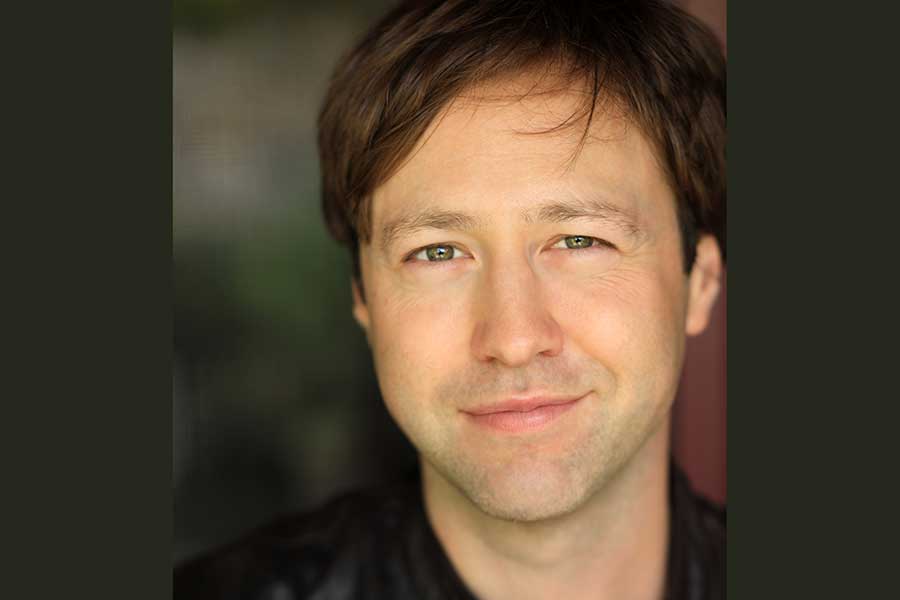One of the highlights of this year’s qFLIX is gay writer/director Russell Brown’s enjoyable ensemble comedy “Search Engines.” The film, which plays noon March 18 at Prince Theatre, has 15 characters in an extended family meeting for a Thanksgiving meal. They are all having trouble, both in life and with their cell phones, and their collective situations force everyone to communicate in real time, offline.
The fabulous cast includes Connie Stevens as Geena, the family matriarch, whose daughter Judy (Joely Fisher, Stevens’ real-life daughter) is trying to cook a turkey in part to save her marriage. Other characters include Kate (Daphne Zuniga), who has man trouble; and Georgia (Natasha Gregson Wagner) and David (Barry Watson), who connect in real life when their respective partners are distracted by their phones. (Fun fact: Gregson Wagner and Watson are married in real life.)
Brown chatted via Skype about making “Search Engines.”
PGN: What sparked your interest in making this film?
RB: I wrote the movie three years ago. I was drawn into it because I was spending so much time on the phone — dating, reviewing things, looking things up, etc. So I asked myself, Am I finding what I’m looking for? Is it leading me to what I wanted to find? I thought about the word “search.” It’s the operative word of our time. I thought, What are we searching for, and are we finding it?
PGN: Can you talk about casting the actors and working with them on their roles?
RB: There were no auditions. I met each actor I wanted to cast and we talked about the characters and I rewrote the characters for the actors. When I met with Barry [Watson], he said people were always on Instagram. He was tired of talking to people about that, so his character is going through that. Because his wife is always reviewing things and is distracted, he can’t talk to her. Natasha Gregson Warner has the same issue; she can’t connect with her husband because, unbeknownst to her, he is on gay sex apps. Connie’s character is concerned that everything is moving too fast and she can’t keep up with the technological advances coming at her, so she finds that unnerving and frightening.
PGN: Your film takes place almost entirely in the house, but it never feels stagy.
RB: A lot of the movies I love are like that. Henry Jaglom’s “Eating” had a similar structure. In that film, they are all talking about eating, and I’m talking about cell phones, but all the characters are really talking about bigger life issues.
PGN: The film has a very L.A. vibe. Can you talk about how this film captures Southern Californian life?
RB: Southern California is a surreal place. You’re always sort of alone, drifting these long distances to get to this other part of the city. The vibe is to get more surreal and strange. The weather aspect is this late, warm/hot sunny day for Thanksgiving is very Southern Californian. We don’t have snow and the traditional “look.” That adds to the strange, surreal quality. All of my films are about literate, well-spoken Los Angelinos who get past the stereotypes of the people and what it’s like to live here.
PGN: There’s a queer subplot in the film. Can you talk about incorporating LGBT content in your work?
RB: It’s not something I have to do, it just happens. It’s part of my life. There’s not a conscious attempt to include it; it just shows up naturally.
PGN: How glued are you to your phone?
RB: I’m not that great about tearing myself away from my phone. There are some great things that the phone has made possible, but it’s such a time suck. In terms of finding relationships and love, there’s a side of it that can make you feel lonely. Even though you’re connecting with people, you’re not connecting with them. I’ve chatted with folks for days and never met them but I felt I had intimate contact with them. It’s addictive. You’re in the airport waiting for a plane and you get on a site because you have some time to kill. You get into this habit that isn’t so healthy. There are certain things we don’t know how to do anymore. How do you look up a word where you don’t have a dictionary and your phone goes down? Or how do you search for a restaurant if you don’t have the tools? It’s funny, I almost wish I had written the film now rather than three years ago; I think it’s not extreme enough. Our dependence on our phones has gotten worse. The election brought out the ugliness of technology and it continues to do that.
Editor’s note: Gary M. Kramer is a programmer for qFLIX.
